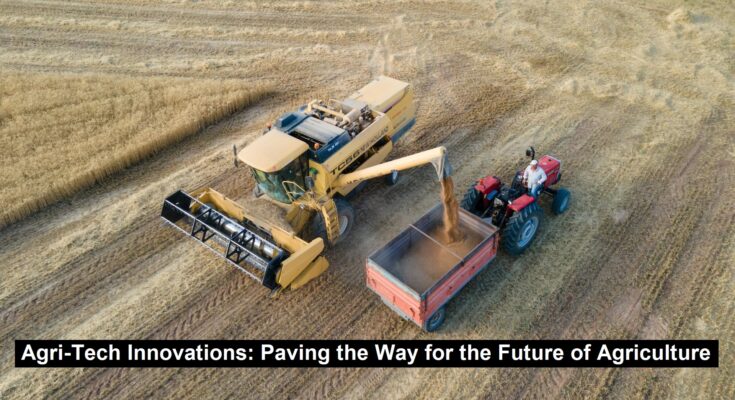Agriculture is embracing a technological revolution, driven by innovations in agri-tech that are fundamentally changing how farming is done worldwide. From precision farming to automated irrigation, the latest advancements in agricultural technology are helping farmers optimize resources, enhance crop yields, and promote sustainable farming practices. These technological tools are not only improving the efficiency of farming operations but are also enabling farmers to tackle some of the industry’s most pressing challenges.
One of the key benefits of agri-tech is the improvement of decision-making capabilities. Precision farming leverages data from sources like satellite imagery and soil sensors to provide farmers with actionable insights about crop conditions. This allows for the precise application of water, fertilizers, and pesticides, minimizing waste and maximizing resource efficiency. Drones equipped with high-resolution cameras provide real-time surveillance of fields, enabling farmers to quickly detect problems such as pest infestations, disease, or soil imbalances—before these issues escalate into major concerns.
Read: Simple Strategies for a Digital Detox and Reducing Screen Time
Automation technologies are also playing a significant role in reshaping the agricultural sector. Automated irrigation systems, which draw data from weather stations and soil moisture sensors, allow for the precise delivery of water to crops based on their specific needs. This targeted approach reduces water waste while ensuring crops receive the optimal amount of hydration. Robotics, capable of performing tasks such as planting, harvesting, and weeding, are revolutionizing labor-intensive aspects of farming. These technologies not only increase operational efficiency but also reduce the physical strain on farmers, enabling them to focus on higher-level management tasks.
The Internet of Things (IoT) is at the heart of these advancements, providing the connectivity needed to integrate various technologies. IoT devices collect and transmit data, offering farmers a comprehensive view of their operations and enabling them to make real-time adjustments. This interconnectedness streamlines processes, reduces labor costs, and boosts productivity, making agriculture more responsive and data-driven than ever before.
The role of physical infrastructure, such as metal casting, is also critical in ensuring the durability and reliability of agri-tech systems. Components like drone parts, irrigation system frameworks, and sensors all rely on strong, precise metal components to withstand the tough conditions of agricultural environments. Metal casting plays a vital role in creating these components, ensuring the longevity and effectiveness of agri-tech machinery.
With the global population steadily increasing, the demand for food will continue to rise. Agri-tech offers the tools needed to address this growing need, while also mitigating the challenges posed by climate change, resource scarcity, and environmental degradation. The continued development of these technologies will be crucial in ensuring that agriculture remains productive, sustainable, and efficient for generations to come.
Agri-Tech-Innovations
To explore more about how agri-tech is revolutionizing agriculture, be sure to check out the accompanying resource, provided by Hiler Industries.




